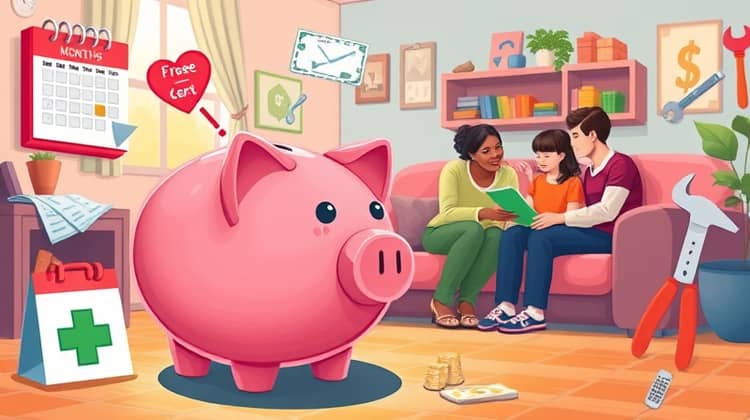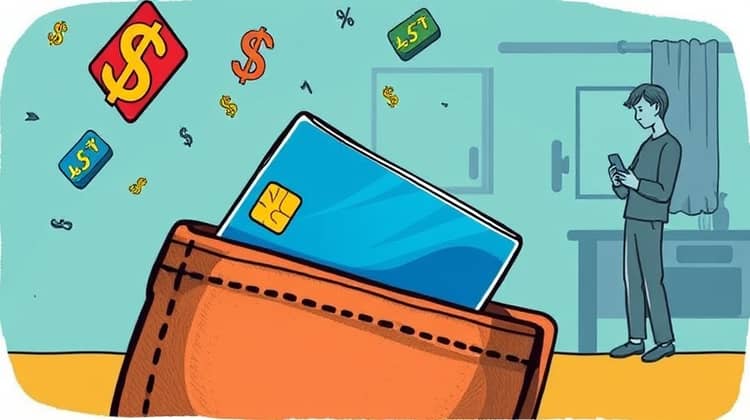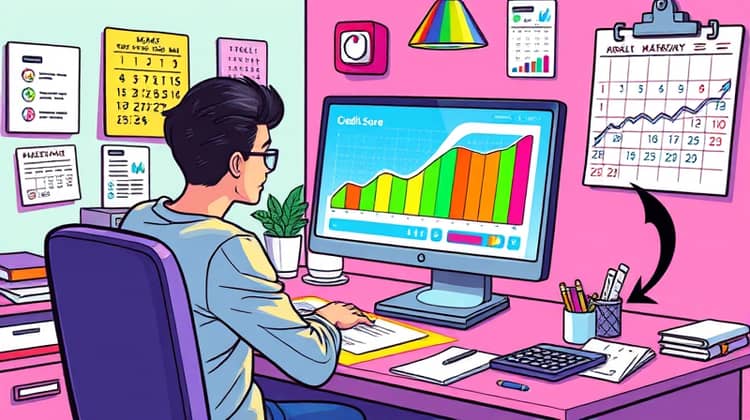In today's fast-paced world, emergencies can arise when we least expect them, and having the right financial strategy is crucial for navigating these challenging times. Using credit cards wisely can help you manage unexpected expenses without falling into a debt trap. This article will explore essential tips for making the most out of your credit cards during emergencies.
From understanding the differences between debit and credit to planning an emergency fund, each section will provide you with practical advice to maintain financial stability while handling unforeseen circumstances. Let's dive into the key strategies and be prepared for whatever comes your way.
1. Understand the Difference Between Credit and Debit

Many people interchangeably use credit and debit cards, but they serve different purposes, especially in emergencies. A debit card is linked directly to your bank account, which means you can only spend the money you have at that moment. In contrast, a credit card allows you to borrow money up to a certain limit, which can be essential for covering unexpected costs.
Knowing the difference helps you use each card appropriately in emergencies. Credit cards can provide a safety net when your funds are low, but they also require responsible management to avoid debt accumulation.
- Debit cards fund purchases directly from your checking account.
- Credit cards allow for borrowing against a credit limit, which must be repaid later.
- Using a debit card limits your access to funds but avoids debt.
- Credit cards can offer rewards and benefits that debit cards typically do not.
2. Know Your Credit Card Benefits

Credit cards often come with a range of benefits that can be beneficial during emergencies. These perks can include extended warranties on purchases, travel insurance, and even fraud protection. Understanding these advantages can help you utilize your credit card more effectively when faced with unexpected expenses.
Utilizing these benefits can save you money and reduce stress during emergencies, making it crucial to familiarize yourself with what your card offers.
You can take advantage of the benefits by following this order:
- Review the terms and conditions of your credit card to understand your benefits.
- Make sure to activate any benefits available to you, such as travel insurance.
- Use your credit card for relevant purchases to qualify for additional perks.
Knowing your credit card benefits helps ensure that you maximize what you’re entitled to in unforeseen circumstances. Properly leveraging these perks can mean the difference between financial relief and hardship during emergencies.
Make it a point to regularly check with your credit card provider to stay updated on any new offerings or changes to your existing benefits.
3. Plan Your Emergency Fund

An emergency fund acts as a financial safety net, providing you with money set aside for unexpected situations, such as medical emergencies or significant repairs. It is advisable to save enough to cover at least three to six months’ worth of expenses to safeguard against financial strain during an emergency.
However, if you don’t have the luxury of a fully stocked emergency fund, knowing how to use your credit cards strategically can help you manage costs more effectively.
- Aim to save three to six months’ worth of living expenses for emergencies.
- Evaluate your monthly expenses to determine a realistic savings goal.
- Use auto-savings features where possible to build your fund effortlessly.
- Track your spending to identify areas where you can save for your emergency fund.
Having a dedicated emergency fund, alongside credit cards, may provide peace of mind and flexibility when faced with urgent expenses. It’s essential to balance saving with responsible credit usage to sustain your financial well-being in challenging times.
4. Avoid Cash Advances

While credit cards offer cash advances, this option typically comes with high fees and interest rates. It's best to avoid using your credit card for cash withdrawals unless it's an absolute emergency, as the cost can quickly add up and negate any benefits of using credit.
Instead, rely on your credit card for purchases that you can later pay off without incurring debt, preserving its long-term utility for genuine emergencies.
5. Use Balance Transfer Offers Wisely

Balance transfer offers allow you to move your existing credit card debt to a new card with a promotional interest rate, often lower than what you currently pay. This can be a powerful tool for managing debt effectively in emergencies. However, it's essential to understand the terms and potential fees associated with these offers.
Using balance transfers wisely can reduce your financial burden during a crisis, enabling you to navigate through difficult times more smoothly.
- Evaluate different balance transfer offers carefully before proceeding.
- Be aware of transfer fees associated with moving debt.
- Understand the promotional period and interest rates after the offer ends.
- Make a plan to pay off your transferred balance before higher rates apply.
6. Stay Within Your Credit Limit

Maintaining a good credit score and staying financially healthy means being mindful of your credit limit. It can be tempting to max out your card during an emergency, but accumulating high debt can have long-term repercussions on your financial stability.
Staying within your credit limit ensures that you have available credit for actual emergencies without jeopardizing your credit score or future borrowing potential.
- Keep track of your spending to avoid exceeding your credit limit.
- Set alerts for credit card usage to manage expenses effectively.
- Make payments before the due date to maintain a low balance.
- Use budgeting apps to manage finances and prevent overspending.
Staying disciplined with your credit usage can significantly impact your overall financial health, allowing you to successfully cope with emergencies when they arise.
7. Create a Repayment Plan

If you find yourself in a position where you've had to rely on credit cards during an emergency, creating a repayment plan is essential. Planning how and when you will pay back the amount you owe will prevent high-interest charges and avoid debt spirals.
Establishing a repayment timeline will help manage your finances post-emergency.
- Determine how much you owe and at what interest rate.
- Set a specific amount to pay back each month based on your budget.
- Prioritize payments for cards with the highest interest first.
- Consider setting up automatic payments to ensure bills are paid on time.
8. Monitor Your Credit Score

Regularly monitoring your credit score is crucial, especially after you’ve used credit cards heavily during an emergency. Understanding how various factors, such as credit utilization and payment history, affect your score can empower you to make smarter financial decisions moving forward.
Use free online tools or services to keep an eye on your credit score and identify any changes that could affect your future borrowing capabilities.
9. Seek Professional Advice

If you're feeling overwhelmed by credit card debt or unsure about your financial strategy, seeking professional advice can be a game-changer. Financial advisors can provide insights and strategies tailored to your situation, helping you navigate any complex areas of credit management.
Professional guidance can offer solutions that you may not have considered while dealing with the stress of an emergency.
Conclusion

Navigating financial challenges during emergencies requires sound judgment and proactive strategies. By understanding the tools and resources at your disposal, such as credit cards and emergency funds, you can effectively manage unforeseen expenses without compromising your financial health.
Remember to monitor your credit score, stay within your credit limits, and seek help if necessary. Taking these steps can empower you to face emergencies confidently and emerge financially secure.














